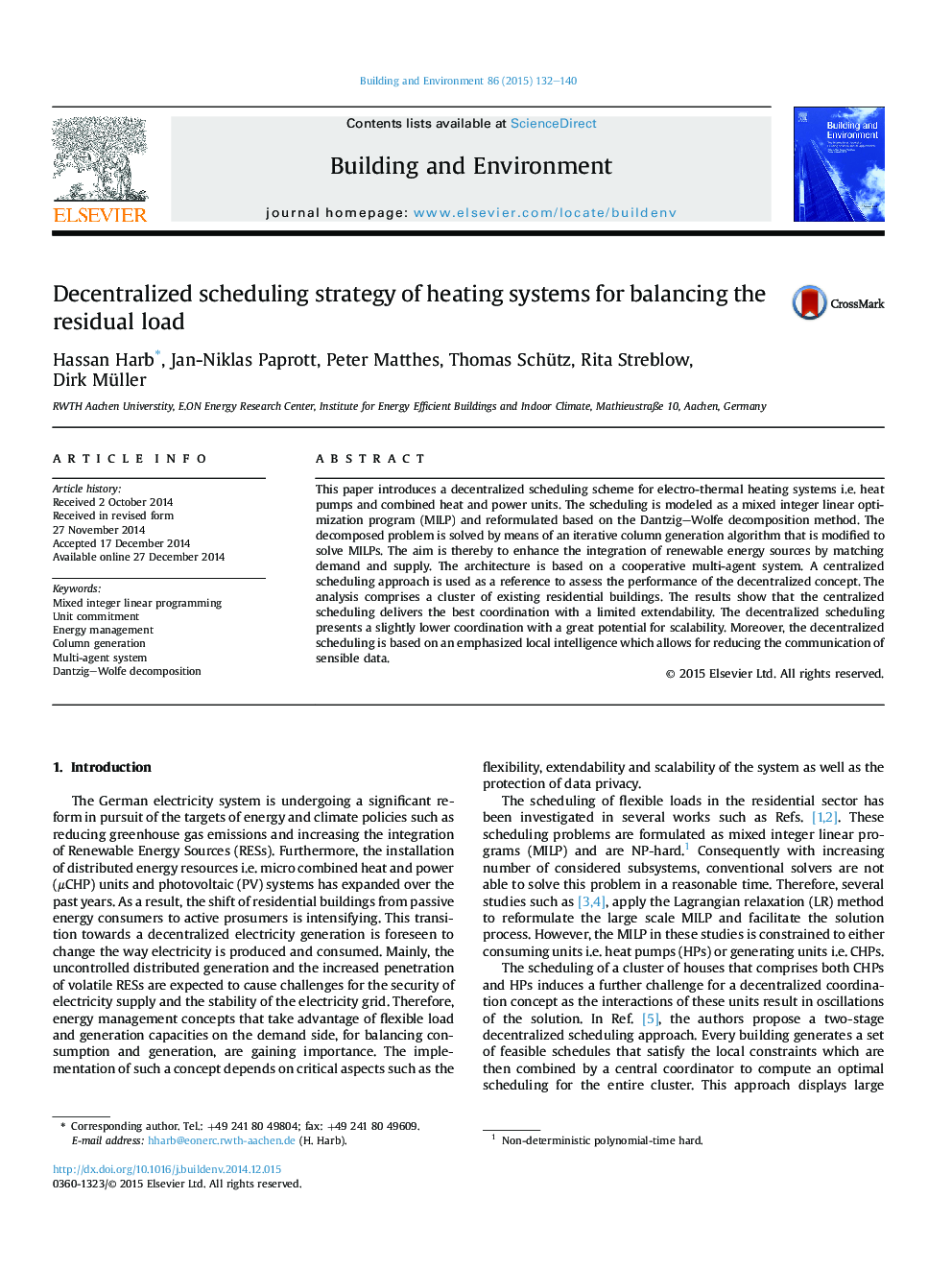| Article ID | Journal | Published Year | Pages | File Type |
|---|---|---|---|---|
| 248059 | Building and Environment | 2015 | 9 Pages |
•Scheduling based energy management concept.•Matching supply and demand from decentralized energy systems.•Enhancing the integration of renewable energy sources.•MILP based on Dantzig–Wolfe decomposition and a column generation algorithm.•MAS enabling robustness, extendibility and scalability as well as data privacy.
This paper introduces a decentralized scheduling scheme for electro-thermal heating systems i.e. heat pumps and combined heat and power units. The scheduling is modeled as a mixed integer linear optimization program (MILP) and reformulated based on the Dantzig–Wolfe decomposition method. The decomposed problem is solved by means of an iterative column generation algorithm that is modified to solve MILPs. The aim is thereby to enhance the integration of renewable energy sources by matching demand and supply. The architecture is based on a cooperative multi-agent system. A centralized scheduling approach is used as a reference to assess the performance of the decentralized concept. The analysis comprises a cluster of existing residential buildings. The results show that the centralized scheduling delivers the best coordination with a limited extendability. The decentralized scheduling presents a slightly lower coordination with a great potential for scalability. Moreover, the decentralized scheduling is based on an emphasized local intelligence which allows for reducing the communication of sensible data.
